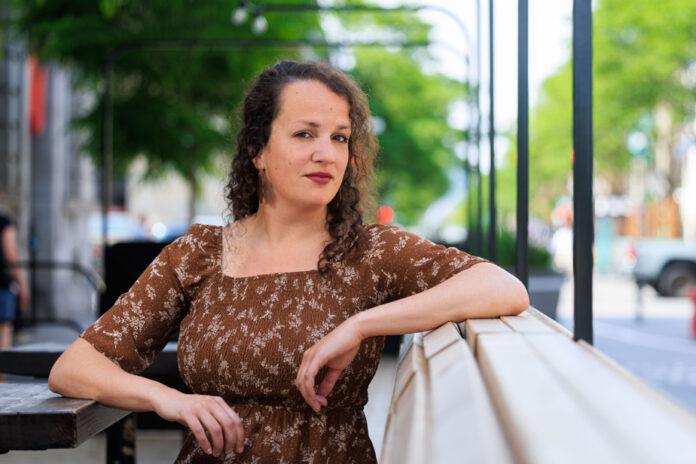Calm reigned at the Makusham studio in Mani-utenam that April morning. Mathilde Côté listened to Florent Vollant explain to her a discomfort with her voice. He found it too dark for his taste. An unpleasant feeling of running out of breath too. “I need help,” he told her.
Mathilde Côté is a composer and choirmaster. She is also a vocal coach, a difficult term to translate and in any case simplistic.
A few weeks after the discussion witnessed by La Presse, Mathilde Côté returned to the Makusham studio to work on the tonalities of Florent Vollant’s songs and make him do exercises. Sometimes unusual stuff like singing in a “pipe” for asthmatics. “It works,” she said, “and besides, it’s funny!” After this little game, he already felt better. “I really feel lighter,” she reports, lovingly imitating the Innu singer’s slow delivery.
To say that Mathilde Côté is a child of the Festival en chanson de Petite-Vallée is not an image. His father, Alan, is the founder of the event. She and her sister Jeanne (winner of the last Francouvertes) grew up surrounded by songwriters. “I started my internship at 8 or 9 years old around the kitchen table,” she says, recounting in particular a moment when Louis-Jean Cormier (a cousin of her father), then a teenager, was writing his first songs. , which the late Sylvain Lelièvre corrected.
“The why and how of training artists has always been part of my life,” says the young woman, who later studied composition (especially with composer and arranger Blair Thompson) and followed specialized training in voice. “If we exclude my academic background, my training in song, it’s a lot [the lyricist] Marc Chabot and Marie-Claire Séguin”, she specifies. From adolescence, Mathilde Côté assisted these two creators of experience in the workshops they offered to trainees from Petite-Vallée.
“Marie-Claire Séguin gave me a lot of tools,” she says. She has a great knowledge of the vocal apparatus and also of performers. She has a benevolent, and a bit cheeky, way of getting people to sing by making them do little physical exercises that she invented intuitively, but which work. »
With them, she also learned that the form of the song itself has an impact that we do not always suspect on the interpretation. That the place of consonants and vowels counts, in particular.
These small interventions often make the task of the interpreters easier. “It makes them feel good,” she says. They feel like they have better access to the sounds and emotions they want to convey, because the body is no longer blocking them. The other important key, according to Mathilde Côté, is pleasure. She regularly tries to bring people back to the essence of their songs, to what they want to tell. “It sounds silly, but it’s not obvious to everyone,” she said. Especially in a context where they want to do well and they are stressed. »
It even happens to old pros. Florent Vollant is preparing for the first time in his life a disc of songs he did not compose himself and which he interprets without being able to play the guitar, due to the after-effects of a stroke which occurred two years ago. years. Mathilde Côté was there to help her find a kind of natural momentum. “We stabilized the column of air in his voice, she rejoices, and we arrived at something brighter. »
You can almost hear her smile when she says that. We guess that Florent Vollant smiled, too, hearing that the shadows had dissipated in his voice.















